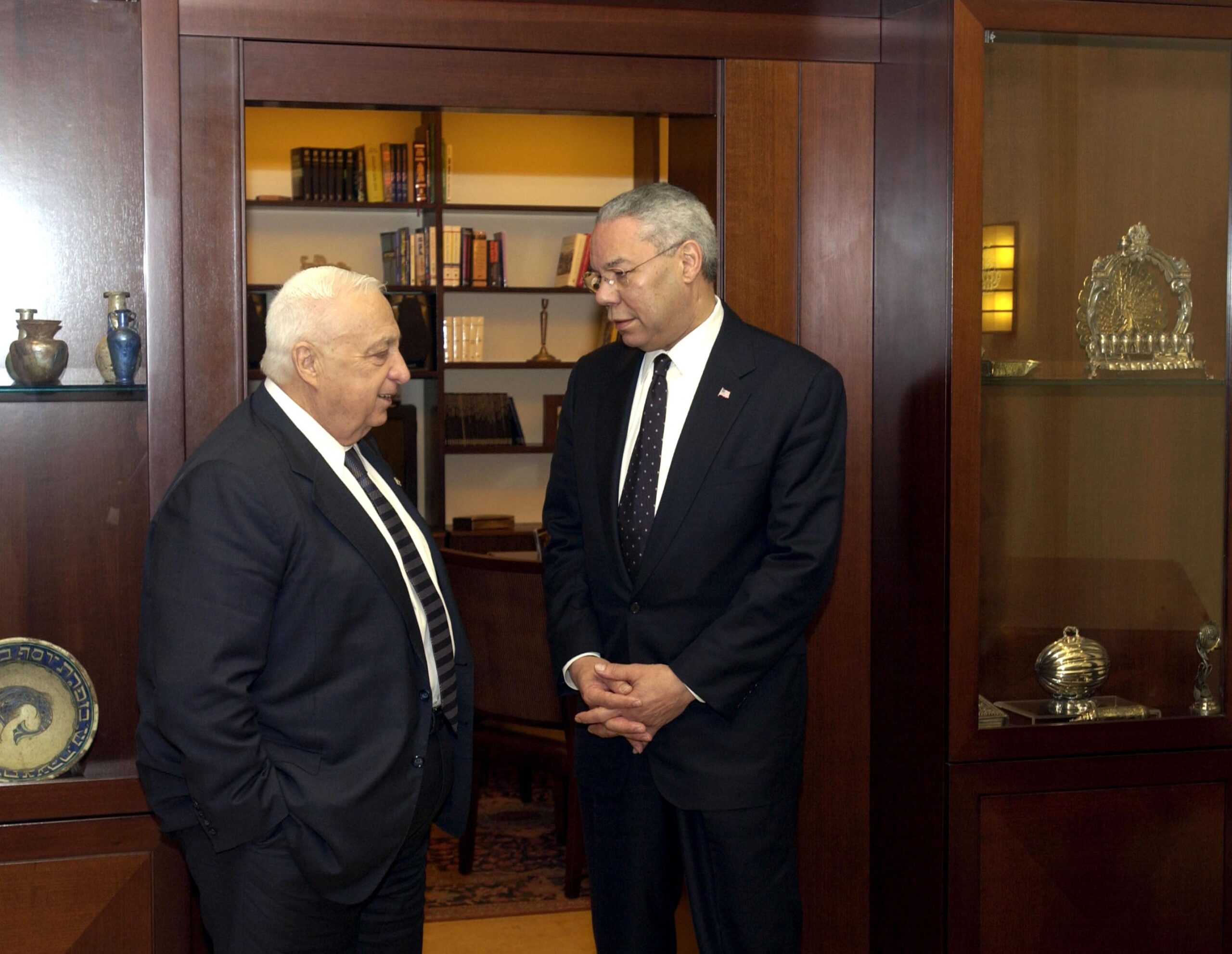
April 11, 2002
U.S. Secretary of State Colin Powell calls for an immediate West Bank cease-fire during a press conference in Madrid before he flies to Jordan to meet with King Abdullah II the day before a meeting with Israeli Prime Minister Ariel Sharon. Powell also says only a negotiated settlement will lead to enduring peace in the Middle East.
A day earlier, Powell completed a summit with the European Union, the United Nations and Russia, all of which support Powell’s call for a cease-fire and the U.S. demand for Israel to withdraw troops from newly besieged Palestinian towns and villages in the West Bank. Israel begins a partial withdrawal from the West Bank before Powell arrives for talks with Sharon and Palestinian Authority President Yasser Arafat to try to resolve the Second Intifada.
Powell’s Middle East trip proceeds despite a suicide bus bombing in Haifa that killed eight Israelis on April 10. That bombing was part of a wave of attacks in response to an Israeli offensive in the West Bank that began March 29, which itself was a response to a surge in violence around Passover in March.
Powell’s talks with Israel and the Palestinians are unsuccessful. Arafat demands a full Israeli troop withdrawal before calling for an end to the violence, and Sharon demands an end to Palestinian suicide attacks before ending the Israeli siege of Palestinian towns. It is not until Feb. 8, 2005, after the death of Arafat in November 2004, that Sharon reaches an agreement with the new Palestinian Authority president, Mahmoud Abbas, to declare an end to the Second Intifada.
